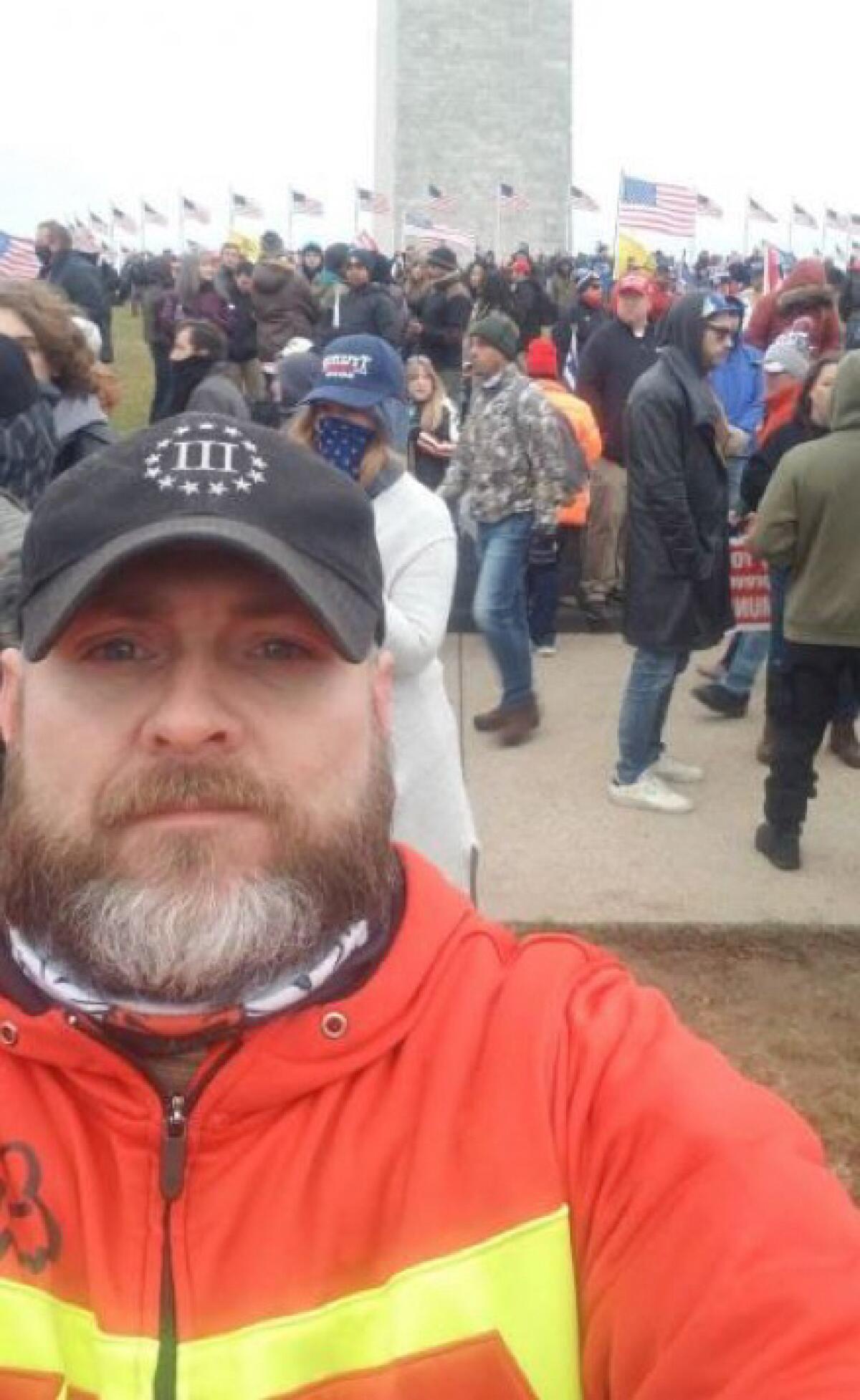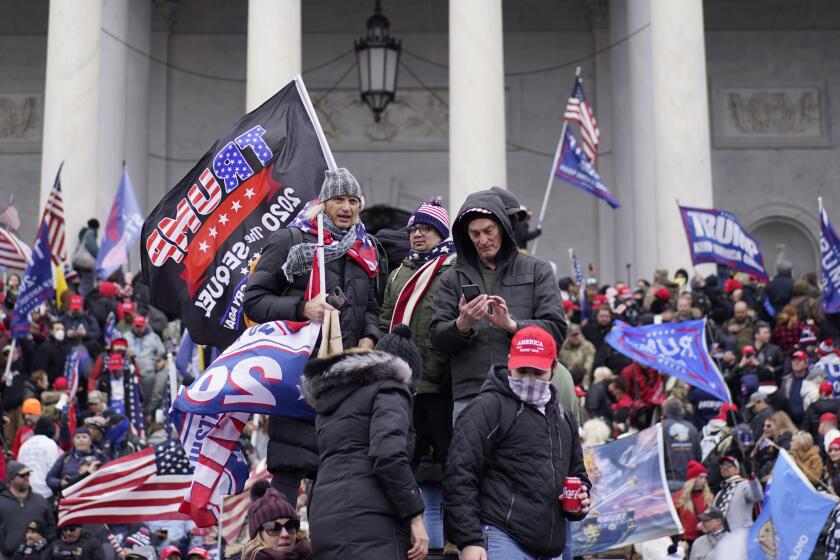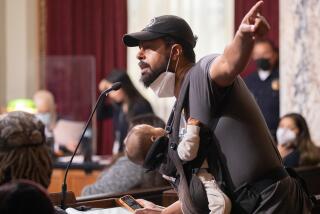Jan. 6 defendant pleads guilty to a single charge after prosecutors forgot to indict him

- Share via
WASHINGTON — A Texas man pleaded guilty Thursday to assaulting a police officer with a dangerous weapon at the Jan. 6 riot, potentially avoiding decades in prison after federal prosecutors lost track of his case for months.
The government has 30 days to indict a person once he or she is arrested. But prosecutors admit that after Lucas Denney’s arrest in December, they lost track of his case among the hundreds of others from the Capitol insurrection.
Denney was not indicted until 85 days after his arrest, after his attorneys moved to have him released from jail in early March. Prosecutors were able to hastily get an indictment on a single charge approved by a grand jury before Denney appeared in court.
Earlier this week prosecutors admitted to the mistake and moved to have the charges against Denney dropped so they could return to a grand jury for an indictment on all of the original charges.

But Denney’s attorney, William Shipley, caught prosecutors and U.S. District Judge Randy Moss off guard when he dropped the motion to dismiss the charge and instead announced his client intended to plead guilty.
Shipley had said Monday that he hoped the quick guilty plea for the single charge of assault on a police officer with a dangerous weapon would keep the government from obtaining a grand jury indictment on the other charges Denney was arrested for.
“I don’t put it past them to run to the grand jury again to try to once again escape the trap that they’ve built for themselves,” Shipley said.
Denney is accused of grappling with police at the Capitol, swinging a metal pole at an officer and throwing multiple items at police after recruiting others to travel to Washington equipped for a fight. He was arrested on eight charges, including conspiracy.
U.S. Atty. Jennifer Rozzoni wrote in a filing Monday morning that, other than the seditious conspiracy charges against 11 Oath Keepers, “these are the most serious offenses charged in relation to the attack on the Capitol.”
Denney bounced on his feet and rolled his neck as he listened to the judge read the charge and ask whether he was aware that by pleading guilty he was waiving his right to a trial and that the government could still bring more serious charges against him.
“Yes, sir,” Denney said. “I understand you, sir.”
It is not clear that the plea will prevent additional charges, as Shipley asserted.
Judge Moss said there could be an argument that adding more charges later would violate Denney’s protections against being tried twice for the same crime, also known as double jeopardy, but he emphasized that the government would likely bring more charges against Denney. Federal circuit courts are split on whether double jeopardy applies in such a situation, and the District of Columbia Circuit Court has not weighed in.
“You don’t have any guarantees that government will not bring additional charges against you,” Moss said.
“At this time the government hasn’t made that decision,” Rozzoni said Thursday.
Moss said Monday he was concerned that Denney might be making a hasty decision that could still result in years behind bars, and delayed Denney’s arraignment until the prosecution and defense could present sentencing recommendations. Denney’s attorneys suggested 41 to 51 months in prison. Prosecutors asked for 57 to 71 months. The charge carries a maximum sentence of 20 years in prison and a fine of up to $250,000. Sentencing is scheduled for June 9.
Federal law also sets a 70-day timeline for a trial to begin once a person is indicted, though a judge can pause that clock at the request of the prosecution or defense. The clock has been paused in hundreds of Jan. 6 cases as the federal government rushes to process an overwhelming amount of digital evidence into a database.
Of the over 775 Jan. 6 defendants, most have pleaded guilty or are out on bond. But the 65 or so being held in jail pending trial, some for over a year, are increasingly pushing for their trials to begin. Many of the defendants being held without bond are accused of violent assaults on police or conspiring to organize the storming of the Capitol.
The evidence in the Capitol insurrection probe rivals what the Hubble telescope has amassed. Sorting through it all has ground many cases to a halt.
The only defendant to complete a jury trial so far, Guy Reffitt, a member of the Texas Three Percenter militia group, was found guilty last week on all counts, including obstruction of an official proceeding and carrying a firearm while being unlawfully on Capitol grounds.
More to Read
Get the L.A. Times Politics newsletter
Deeply reported insights into legislation, politics and policy from Sacramento, Washington and beyond. In your inbox three times per week.
You may occasionally receive promotional content from the Los Angeles Times.












